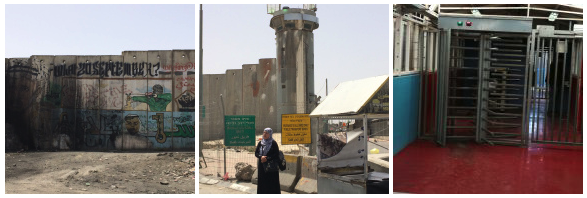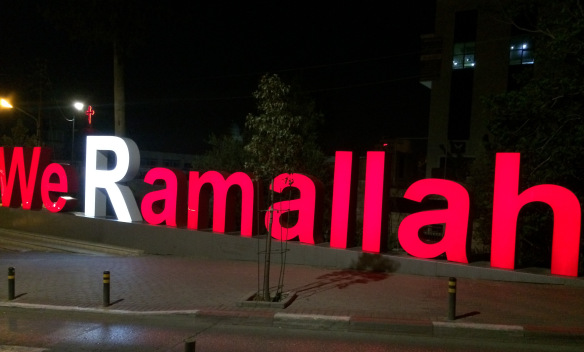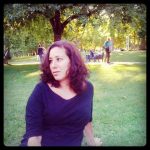Open Education in Palestine: A tool for liberation

This year, and thanks to the OpenMed Project, we had the opportunity to travel to Palestine, to the West Bank, to visit the project partners and participate at the Palestine OER strategy Forum. Due to its political history, this trip has let us thinking about why we need a stronger commitment towards promoting Open Education.
Our trip started in Ramallah, a beautiful and vibrant city, where you can see the Mediterranean from distance, but if you were born there, and you don’t have the right credentials, you don’t hold the right to get to the sea, because there is a wall. In terms to access to knowledge and information, the way West Bank’s Palestinians see the Mediterranean, can be used as a analogy to describe what it means for certain countries and people to be able to look at quality educational resources or the papers they need to conduct your research, or to the data they need for their studies, but they can’t use them because they don’t have the right credentials to access them, and the money, because these are locked under a paywall, so, even if these resources have been funded by public money, you may not be allowed to access them, putting you are behind the knowledge fence.
The first day of our trip we visited Nablus and its university [An-Najah], where we were welcomed with cardamom infused coffee and kunefe, and they told us about the history and the current situation of HE in Palestine, they explained us how do they teach and how they are trying to innovate, despite the lack of access to things we normally take for granted, like journals, equipments, technology, or like having an international body of visiting students, academics and researchers, as there are very little visas granted for foreign academics and students and these are very short, which makes almost impossible to have experiences for knowledge transfer, considering that Palestinians have several travelling restrictions too.

The day of the OpenMed – Palestine OER strategy forum started with a presentation on Open Education for Palestine by professor Marwan Tarazi, Director of the Centre For Continuing Education who stated that Open Education is a tool for liberation. He mentioned that under the current occupation, openness becomes essential to Palestine at philosophical level, and that the educators in Palestine need to open up because, in his words “if you don’t open up, someone will do under their own terms, therefore, if you don’t have an agenda, someone else will do“.

His presentation let us thinking, why we do what we do, in the way we do it. At personal level, I do believe in Openness [Open Education, Open Data, Open Access, Open Science, Open Government, Open Policies], yes, but I never considered openness as a tool for liberation, I always thought about it as a human right, as an instrument for social justice, or a tool for active citizenship, but his words were inspiring, because sometimes the concept of liberation has to do with becoming free from colonial and dominant perspectives, when we do work with communities in countries at the so called “global south”, we must are use an approach that supports the development of strategies for opening up education, science and governance accordingly to their own culture and history.
The realities of each region and countries are diverse, as such is their culture, therefore the strategies developed to grant and promote open access to educational resources, to research papers and data cannot follow a standard recipe, in openness it shouldn’t be a one size fits all approach, we need to have some common ground rules but, each country and region should be allowed to have a unique approach, and we should not disregard diverse views on what openness mean.

To make education and science open, we need to consider that certain rules are better to be skipped. Opening up should mean to share, to do things in a transparent way, to collaborate, to support and to provide the tools for educators and students to be critical thinkers, to challenge and to question, to become communities and not to follow a directive which tells you that are open only if you follow someone else’s agenda, openness should be a tool to liberate us from colonialist approaches, so just be open, under your own terms, share, distribute, communicate, participate, engage, having in mind that access to quality education is human right.
*** All the images used in this post have been taken by Javiera Atenas and are licensed under CCBY
**
About the author

Javiera Atenas, has a PhD in Education and is the co-coordinator of the Open Education Working Group and the Education Lead of the Open American Initiative for Open Data. She is responsible for the Open Data agenda, with focus in capacity building across the HE sector towards supporting the adoption Open Educational Practices and policy development.
She works with the OpenMed project for capacity building in South Mediterranean countries and is an associate lecturer at the University of Barcelona, Spain. She has also authored a series of papers and studies about Open Education and Open Data.
 Open Education Working Group
Open Education Working Group 



Leave a Reply